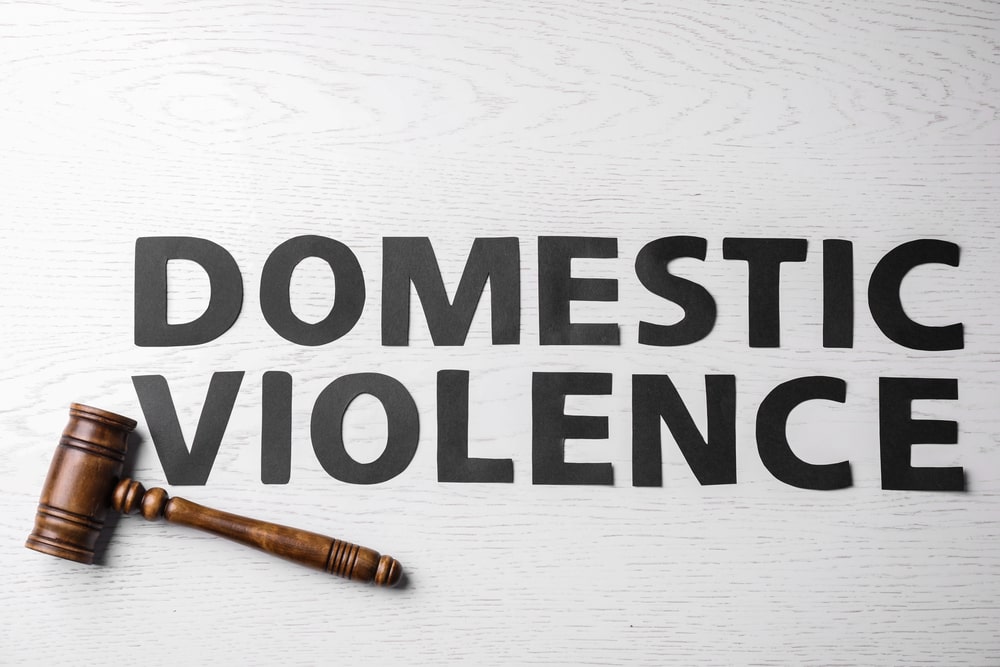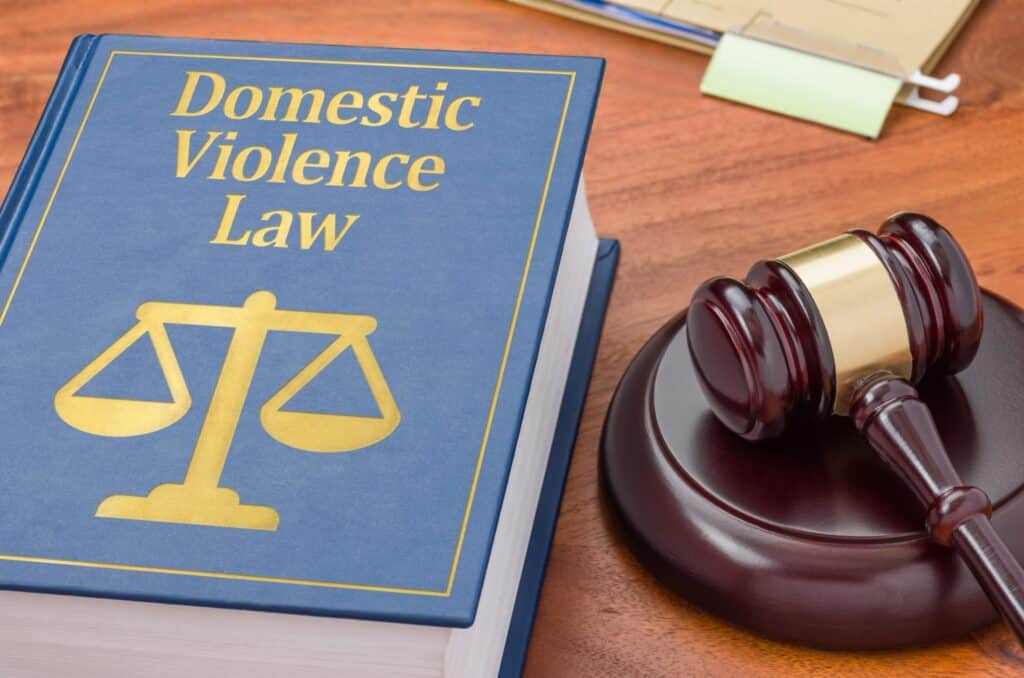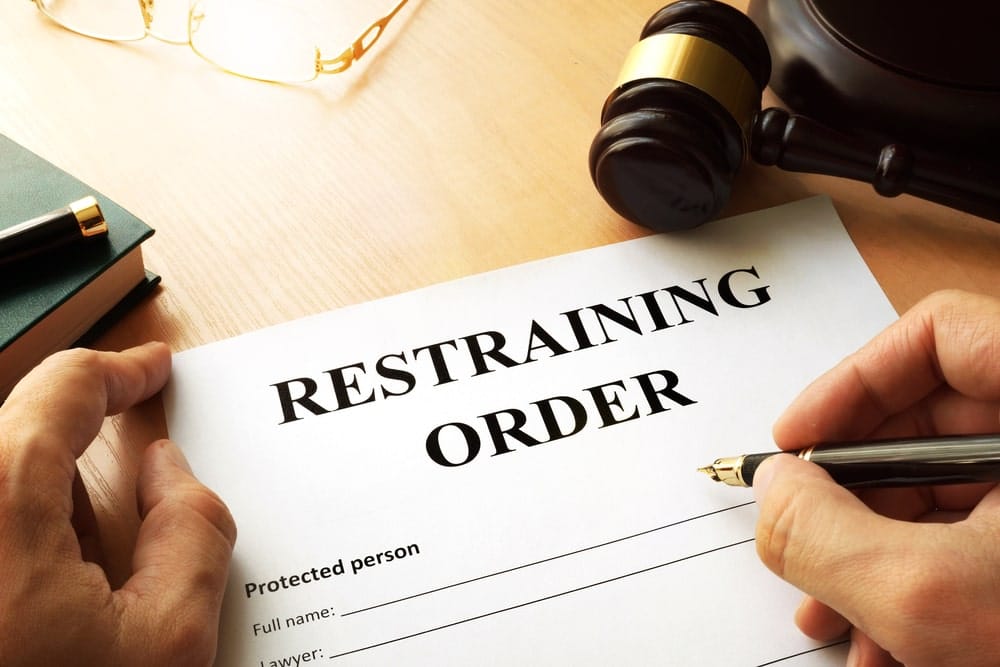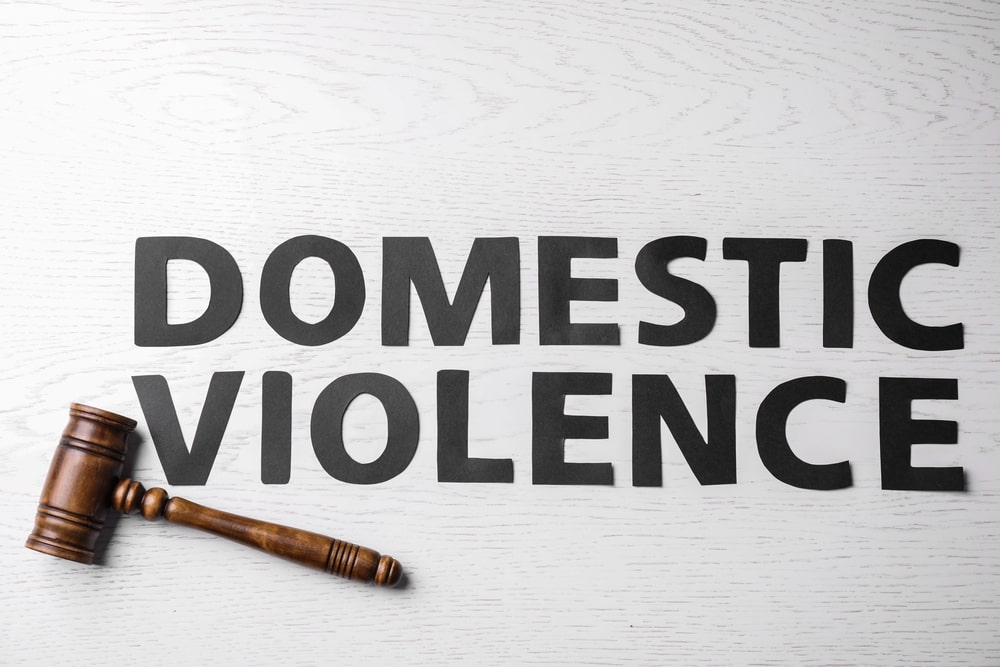Domestic violence laws in Maine
In essence, domestic violence refers to any sort of violent behavior (or even non-violent behavior which is still offensive) perpetrated against a family member, household member, dating partner, or sexual partner.
Domestic violence is among the most serious issues in our society. Few would deny that being a domestic violence victim can be one of the most traumatic experiences a person can undergo. Of course, being a victim of any type of violent crime can be very difficult, but when the accused is a family or household member, this crime takes on an even more destructive element. Wounds from domestic violence can be both physical and emotional; the emotional wounds, in particular, can be very devastating.

In this post, we will provide some details on the various domestic violence crimes currently on the books here in the State of Maine. We will provide basic descriptions, as well as information on how these offenses are classified and punished.
Call 207-571-8146 or contact us online to schedule a consult with one of our highly skilled criminal defense & OUI lawyers, serving Southern Maine, today.
Table of Contents
Domestic Violence Penalties in Maine
In a way, discussing the possible penalties for domestic violence offenses isn’t easy because everything is so dependent on the specifics of each case. Even if the exact same offense is present in two separate cases, the punishment might be quite different because of the particular conditions surrounding the crimes. For instance, one offense might be a repeat offense, whereas another might involve a first time offender. Nevertheless, we can still state some general information and principles when it comes to punishments for domestic violence offenses.
1st time offender penalties
A Class D crime is considered a misdemeanor violation in Maine, and it receives the lightest possible punishments. These crimes are punishable by a maximum of 1 year (364 days) in jail, and a maximum of $2,000 in fines. However, readers should know that domestic violence crimes come with their own additional penalties, such as probation, and educational coursework. For instance, someone guilty of a misdemeanor domestic violence offense may be required to complete a “certified batterer’s intervention program,” and this program can be long and quite expensive.
2nd offense penalties
A Class C crime is considered a felony in Maine, and consequently the punishments are tougher. A Class C crime carries a maximum sentence of 5 years in prison and a maximum of a $5,000 fine. Importantly, these punishments can be imposed regardless of whether the underlying offense is a Class C crime, or the offense is “converted” or increased to a Class C crime because of prior convictions. This is just one more reason why Maine residents and non-residents alike need to avoid a conviction at all costs. As we’ve discussed, certain things can also lead to a higher classification, aside from just repeat offenses; thus, if a person commits a crime with a weapon, this can elevate the offense to a higher classification and lead to heavier punishments.
For very serious domestic violence offenses, such as those classified as Class B crimes, the maximum sentence is 10 years and the maximum financial penalty is $10,000.
ALL convictions for domestic violence assault, regardless of the classification, carry with it mandatory probation terms. Those mandatory probation terms include participating in Maine’s Certified DV Program, possibly no use or possession of alcohol or drugs, no contact with the victim or the victim’s family, and a lengthy period of unsuspended prison time hanging over the probationer’s head.
With respect to bail, bail conditions for domestic violence offenses tend to be harsher than for other offenses, and partly this is due to the fact that the state wants to prevent immediate contact between the offender and the victim (or victims). Consequently, courts often impose harsh bail conditions, and also frequently create “no contact orders” (restraining orders) to prevent contact between offenders and victims. The practical impact of harsher bail conditions is that offenders are more likely to plead guilty to domestic violence charges in order to have those conditions removed.
Call 207-571-8146 or contact us online to schedule a consult with one of our highly skilled criminal defense & OUI lawyers, serving Southern Maine, today.
Domestic Violence Crimes in Maine
Domestic Violence Assault
The definition of “domestic violence assault” in Maine, Title 17-A, §207-A, basically borrows from Maine’s section on regular or non-domestic assault: whenever a person intentionally or knowingly causes bodily harm or “offensive physical contact” against another person, and the victim is a family or household member (as defined by the code), then that person commits domestic violence assault. The phrase “offensive physical contact” in this context is significant, because this doesn’t only include battery, or physical harm caused by physical contact. If a person’s physical contact is offensive in some way, but doesn’t cause actual bodily harm, the person can still be guilty of domestic violence assault.
For a single offense, without aggravating factors, domestic violence assault is considered a Class D crime in Maine, which is a very serious misdemeanor charge. If that person has a prior conviction for domestic violence, the charge is automatically elevated to a Class C felony.
Domestic Violence Aggravated Assault
Just like domestic violence assault, the crime of domestic violence aggravated assault in Maine, Title 17-A, §208-D, borrows heavily from non-domestic aggravated assault. Under current law, aggravated assault is defined as intentionally or knowingly causing bodily injury which presents a risk of death or extended period of recovery; or, the bodily injury causes permanent disfigurement or loss of a bodily function; or, the bodily injury involved the use of a dangerous weapon; or, the person who committed the injury demonstrated an extreme indifference to human life. This last definition requires considerable attention to the circumstances surrounding the incident, as judges often need to take clues from a person’s other related behavior to substantiate such a claim.
Simply put, if the victim in any of these hypothetical scenarios were a family or household member, then the crime would be categorized as domestic violence aggravated assault, rather than simple aggravated assault. Domestic violence aggravated assault is considered a very serious offense, and so each of these variations defined above is classified as a Class B crime, except for the second variation – injury causing disfigurement or loss of function – which is classified as a Class A crime.
Call 207-571-8146 or contact us online to schedule a consult with one of our highly skilled criminal defense & OUI lawyers, serving Southern Maine, today.
Domestic Violence Elevated Aggravated Assault
The crime of domestic violence elevated aggravated assault, Title 17-A, §208-E, is defined as follows:
The perpetrator intentionally or knowingly inflicts severe bodily injury to a family or household member with the use of a dangerous weapon; or, the perpetrator engages in behavior which shows an extreme indifference to human life, and the behavior leads to serious bodily injury to a family or household member with the use of a weapon; or, the perpetrator engages in behavior which causes serious bodily harm to a family or household member, and the perpetrator shows “terroristic intent” during the incident.
Expectedly, because this crime is regarded as a more serious offense that non-elevated domestic violence aggravated assault, this crime is classified as a Class A offense in the State of Maine under current law.
Domestic Violence Elevated Aggravated Assault on Pregnant Person
This crime is defined identically to the previous crime, except that the family or household member (the victim) is pregnant at the time of the assault. Predictably, this crime is also classified as a Class A offense, and is understandably punished more harshly than elevated aggravated assault against a non-pregnant person.
Domestic Violence Terrorizing
The crime of domestic violence terrorizing, Title 17-A, §210-B, is defined as communicating a threat of violence to another person (who is a family or household member), and that threat of violence is reasonably believed by the other person, and as a consequence the recipient of the threat experiences a fear that the crime will be committed.
This type of offense is classified as a Class D crime. If, however, a person has prior convictions for domestic violence, then a repeat offense can be boosted to a Class C crime.
Domestic Violence Criminal Threatening
Similarly, the crime of domestic violence criminal threatening, Title 17-A, §209-A, follows the same pattern: if a person intentionally or knowingly places another person in fear of imminent bodily injury, and the recipient of the threat is a family or household member, then the offender may be guilty of domestic violence criminal threatening. Importantly, the statute on criminal threatening doesn’t identify or reference a specific medium of communication, and so theoretically this crime can be committed in various ways. A person might commit this crime, for instance, via a phone conversation, or more likely, during an in-person argument. This offense is also a Class D crime, but past incidents can raise the classification to a Class C crime.
Call 207-571-8146 or contact us online to schedule a consult with one of our highly skilled criminal defense & OUI lawyers, serving Southern Maine, today.
Domestic Violence Stalking
Stalking behavior is somewhat different from assault or criminal threatening with stalking, Title 17-A, §210-C, the offender engages in a “course of conduct” which would cause a “reasonable person” to do one of the following: suffer serious emotional distress or inconvenience, or fear bodily harm, or fear bodily harm to a friend or relative, or fear being killed, or fear that a friend or family member will be killed, or fear that property will be either damaged or destroyed. If the victim of this crime is either a family or household member, then the stalking is automatically categorized as domestic violence stalking and treated accordingly. Currently, this type of crime is classified as a Class D crime, but previous convictions can elevate the charge to a Class C crime.
The statutory language of this crime includes multiple definitions for its multiple terms. For instance, the term “course of conduct” is defined as being 2 or more acts conducted by a single person which are carried out for a specific purpose, such as harassment of a victim. Likewise, the terms “close relation,” “emotional distress,” and “serious inconvenience” are also separately defined under this section.
Definition of Family or Household Member in Maine
As readers will note, many of these criminal definitions are simply standard definitions with an additional requirement that the victim be a “family or household member.” Naturally, the question becomes: how is family or household member defined in Maine law.
Currently, Maine domestic violence law includes the following people in this concept:
a current spouse or domestic partner, a former spouse or domestic partner, parents who share a child together, people who presently live together as a romantic couple, people who formerly lived together as a romantic couple, individuals who formerly lived together, adult household members who are blood relatives, and minor children of household members when the defendant is simultaneously an adult household member.
As readers can see, this list is fairly long, although not completely comprehensive, so domestic violence scenarios tend to be quite common.
Call 207-571-8146 or contact us online to schedule a consult with one of our highly skilled criminal defense & OUI lawyers, serving Southern Maine, today.
Contact our Domestic Violence Defense Lawyers Now
As mentioned, Maine’s criminal code is thorough in its treatment of domestic violence offenses, as seen in its careful distinctions between related crimes, and its inclusion of various offenses beyond simple assault. Many readers, for instance, may not have even been aware that domestic violence stalking was considered a separate crime, but this is how the criminal system works in Maine. Hopefully, this overview has given readers a fairly good sense of how these various crimes are defined and how they are interpreted.
If you’ve been charged with any sort of domestic violence offense, you should seek legal assistance immediately. As we’ve referenced, Maine treats these crimes very seriously, and the punishments reflect this fact very clearly.
Defending your domestic violence allegations anywhere in Southern Maine
If you’re convicted of domestic violence, your conviction will remain on your permanent criminal record indefinitely, and this can impact your life in many different ways.
If you need assistance, contact the Maine Criminal Defense Group by calling 207-571-8146 or contacting us directly online and consult with one of our attorneys today. We have offices located conveniently in Portland, Kennebunk, & Brunswick serving our clients throughout all of Southern Maine.
Call 207-571-8146 or contact us online to schedule a consult with one of our highly skilled criminal defense & OUI lawyers, serving Southern Maine, today.
Blog Posts

A domestic violence conviction can have serious consequences in Maine Assault, criminal threatening, and reckless conduct in domestic settings can all be classed as domestic violence in Maine—and criminal charges[...]

Defending those accused of domestic violence in Southern Maine Assault, criminal threatening, and reckless conduct in domestic settings can all be classed as domestic violence in Maine—and criminal charges can[...]

Sexual assault and sexual battery both refer to criminal offenses where a victim does not provide consent to sexual contact. This contact may or may not involve penetration, force, violence,[...]

The domestic violence and stalking laws in Maine are currently being updated to address some shortcomings in the previous laws and to add clarity for both victims and accused parties[...]

In recent years, convictions for domestic violence offenses in Maine have increased as state prosecutors rigorously pursue cases. This has led to harsher penalties for offenders, which makes it even[...]

Crimes of domestic violence in the state of Maine can be confusing. This is because crimes of domestic violence are really just other crimes, like assault or battery, when those[...]

A protection from abuse order (PFA) can make it illegal for an individual to contact you or your children in the state of Maine. Filing a PFA is often a[...]

Protection from Abuse Orders (PFAs), such as restraining orders and no-contact orders, are frequently issued by the courts in domestic violence cases in Maine but are often confused. No contact[...]

This article was updated March 6, 2025 Oftentimes what I see in these domestic violence situations is that a husband and wife get in a fight. They love each other[...]

Domestic violence cases can be some of the most challenging to deal with for everyone involved. Families with children can be thrown into turmoil with emotions running high. Many people[...]


